When primary health care becomes a support for patients
In mid-August, Ms. Bui Thi Hoanh (Thanh Den village, Quang Yen ward) was hospitalized with severe back pain, almost unable to walk. At Quang Yen Medical Center, she was diagnosed with sciatica due to a herniated disc in the lumbar spine. That same night, a treatment regimen was implemented. After only one day, the pain was completely relieved; 4 days later, she was able to walk on her own and was expected to be discharged within a week.
Ms. Hoanh said: “Because of the severe pain, my family was quite worried. But when I came here for treatment, I was well taken care of and treated very effectively. The doctors were dedicated, regularly visited me, and gave me detailed instructions. Thanks to that, I felt secure in receiving treatment near my home, without having to go to a provincial hospital like before.”
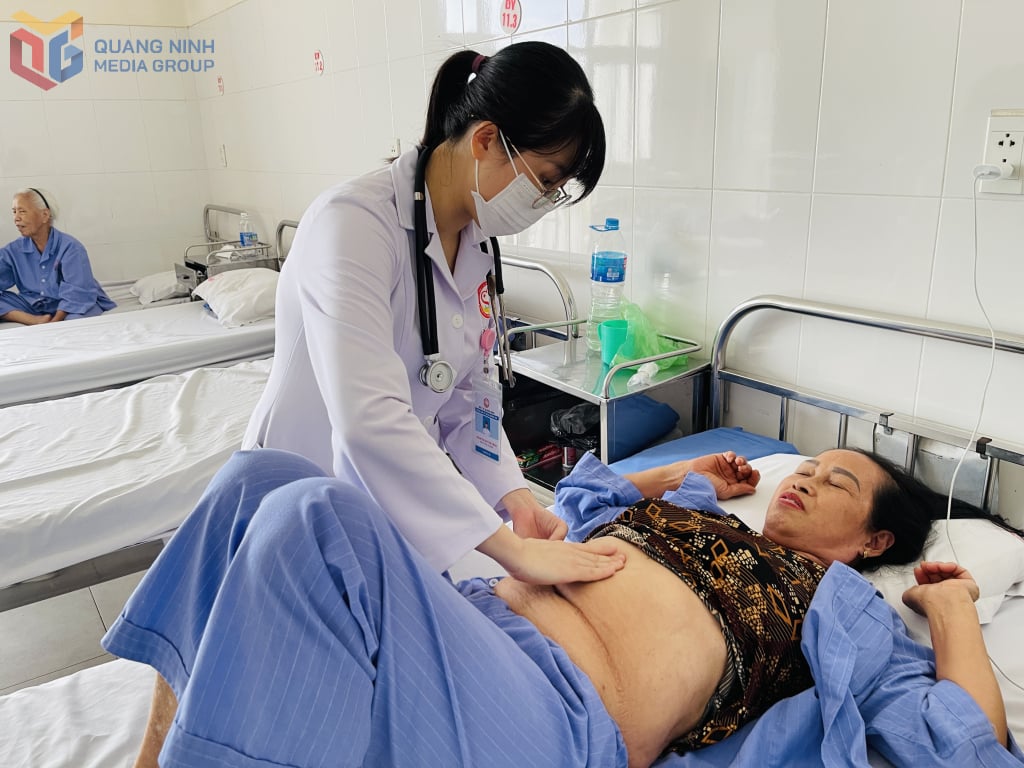
Ms. Hoanh's story is also the common feeling of many people about the obvious changes in primary health care. In recent years, Quang Yen Medical Center has implemented many synchronous solutions to improve service quality. A breakthrough is to promote digital transformation. To date, the Center has managed electronic health records for 153,727/155,036 people, reaching 99.16%; deployed 35,969 national electronic prescriptions, with 52 doctors being granted prescription codes. Health insurance examination using CCCD/VNeID reached 90.3%. The rate of non-cash payment reached 46.5% with a total value of more than 4.4 billion VND in the first 6 months of 2025.
Along with procedural reform, the Center focuses on developing specialized techniques. Many services that were previously only performed at the provincial level are now being implemented at the grassroots level, such as joint replacement, phaco surgery, joint tissue reconstruction, etc. Thanks to this, the number of patients coming for examination is increasing, averaging 500 visits/day, much higher than the previous level of 300-350 visits. In the first 6 months of 2025 alone, the Center received 77,001 visits (an increase of 17% compared to the same period in 2024) and 8,987 inpatient treatments (an increase of 9%).
According to Dr. Huynh Tan Trung, Head of Planning and Operations Department, Quang Yen Medical Center, the secret to improving quality is the synchronous combination of technology and people. “We identify human resources and technology as two pillars. Every year, the Center develops a training plan, professional development for staff, and at the same time applies digital technology in managing medical records, registering, and returning results online. These solutions help save time, improve accuracy and patient satisfaction,” said Dr. Trung.
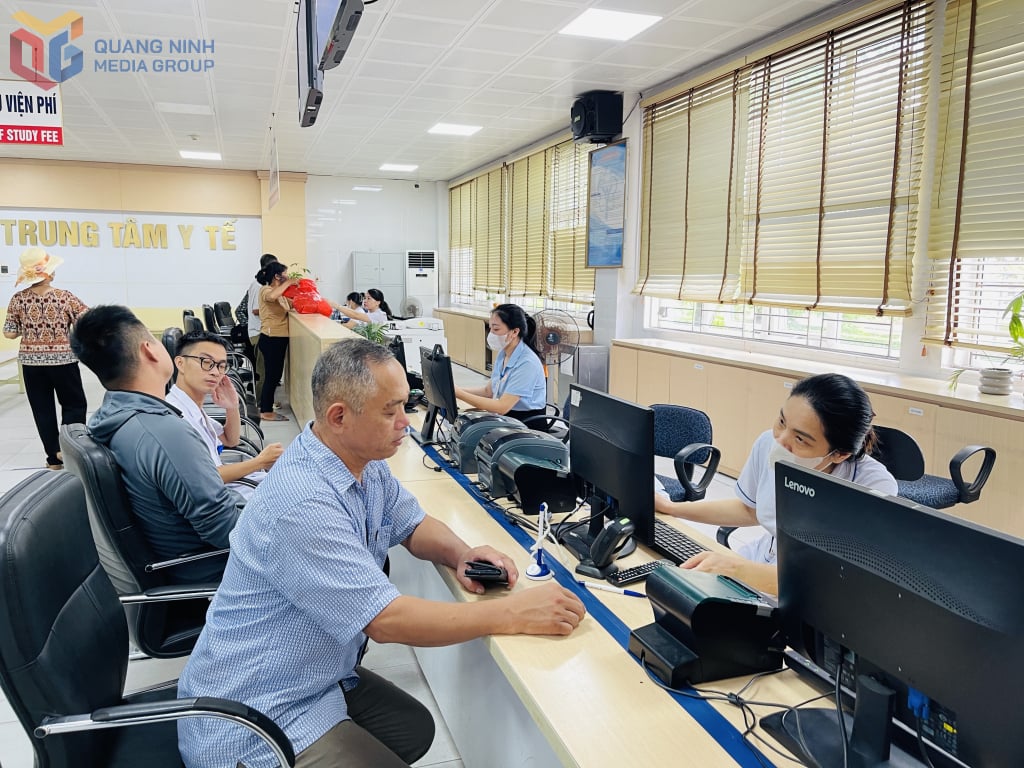
In addition to expertise, the Center also focuses on improving medical ethics and service attitude. 100% of staff are periodically trained and sign a commitment to implement the "Code of Conduct, improve medical ethics, and aim for patient satisfaction". Survey results show that the satisfaction level of people and medical staff reaches 98% - a number that affirms the efforts to improve the quality of primary health care services.
Improving the quality of primary health care with synchronous steps
Quang Ninh's grassroots health system currently includes local health centers and commune and ward health stations. Not only Quang Yen Health Center, in recent years, the grassroots health picture of the whole province has also changed significantly. Implementing Resolution No. 18-NQ/TW dated October 25, 2017 of the 6th Central Conference, Session XII on a number of issues on continuing to innovate and reorganize the apparatus of the political system to be streamlined, effective and efficient, and the policies and conclusions of the Central, Provincial Party Committee, Provincial People's Committee, the Department of Health has completed the consolidation, reorganization and streamlining of the apparatus. In particular, receiving health stations from the district-level People's Committees for the health sector to manage. Currently, the whole province has 171 health stations. The streamlined arrangement of the apparatus has helped to unify management, avoiding overlapping functions and tasks; overcome the shortage of doctors, maximize the ability to provide professional medical examination and treatment services at hospitals and commune health stations, contributing to improving the quality of primary health care for the people.
Along with strengthening the organization and apparatus, the province prioritizes allocating resources to invest in facilities and medical equipment for districts and communes; paying attention to building, maintaining, consolidating and perfecting health stations that meet the national standards for commune health. In the period of 2023-2025, Quang Ninh has devoted large resources to repairing and upgrading 126 commune, ward and town health stations, and proposed to build 8 new seriously degraded health stations. In 2023 alone, the total investment for the grassroots level reached more than 218 billion VND, helping many stations change their appearance, meeting the standards for facilities and service conditions. To date, the whole province has 106/171 communes meeting national standards for commune health.
At the same time, the province focuses on training and developing its staff. Professional training courses, updating treatment protocols, instructing on behavioral skills, and improving medical ethics are held regularly. Currently, 100% of health stations have doctors working; many units have implemented the family doctor model to manage primary health care for people right in the community.
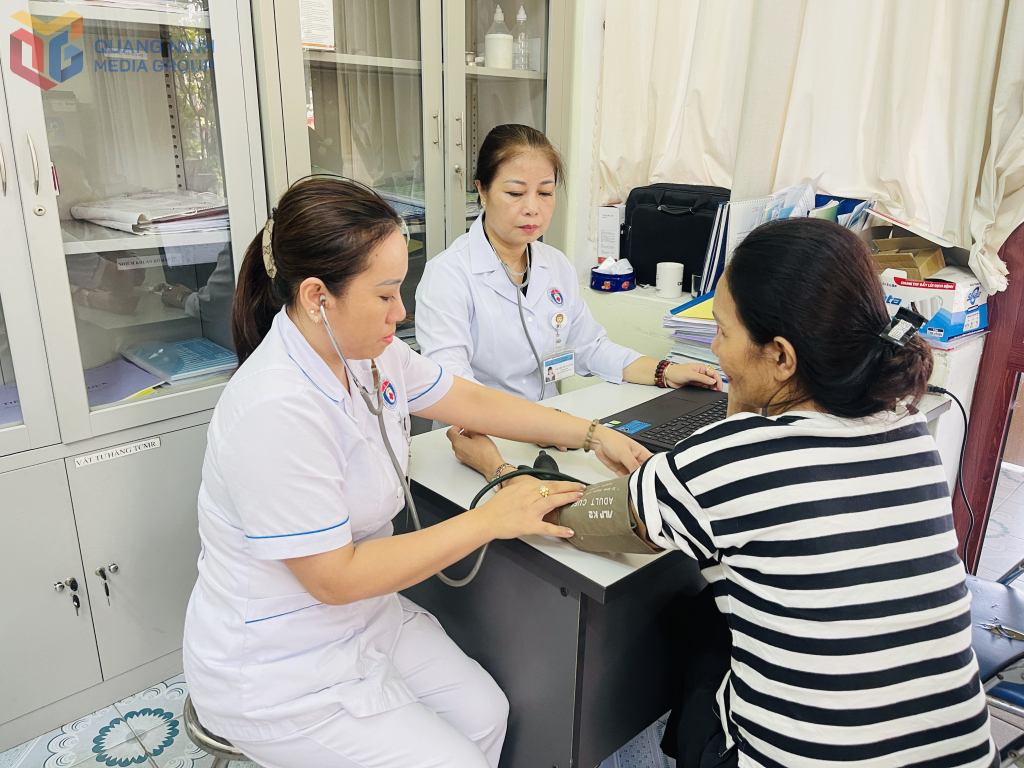
Dr. Nguyen Thi Tu Uyen, Head of Trung Vuong Medical Station (Vang Danh Ward) said: “Our station is one of the units with the highest number of outpatients, especially non-communicable diseases, in the ward. In the first 6 months of this year, the station received, examined and treated about 1,800 patients, of which over 1,700 were outpatients. Many patients with chronic diseases are managed, monitored and periodically re-examined right at the station. Therefore, patients not only save on travel costs but also receive continuous, safe and more effective care.”
Digital transformation is an important step forward, helping to improve management and service efficiency. The province has digitized health records for over 99% of the population, deployed electronic prescriptions at all public facilities with tens of thousands of prescriptions connected to the national system. The rate of health insurance examinations using chip-embedded citizen identification cards and VNeID application reached over 90%; the rate of cashless payments has increased rapidly, contributing to cost transparency and reducing waiting time for patients.
The above results are clear evidence for the concretization of the Party's policies and resolutions on caring for and protecting people's health right from the grassroots level. The consolidation of the network, improvement of human resource capacity, investment in infrastructure, and promotion of digital transformation have been contributing to the effective implementation of Resolution No. 20-NQ/TW of the 12th Central Executive Committee on strengthening the protection, care and improvement of people's health in the new situation. This is also an important preparation step for the Quang Ninh Health sector to confidently accompany the province in implementing the goals of the Resolution of the 15th Provincial Party Congress, term 2020-2025, and towards the 16th Provincial Party Congress.
Source: https://baoquangninh.vn/cung-co-y-te-co-so-buoc-di-chien-luoc-vi-suc-khoe-cong-dong-3372229.html









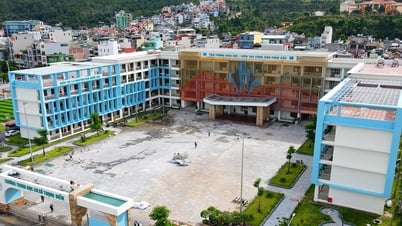











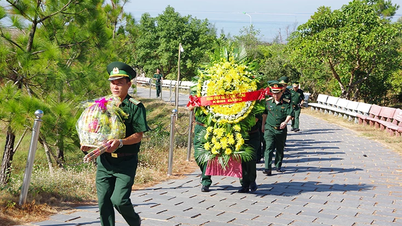















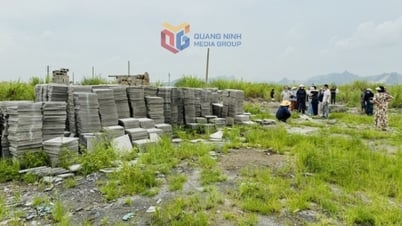

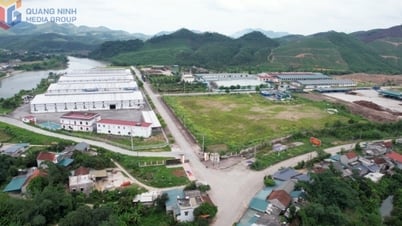















































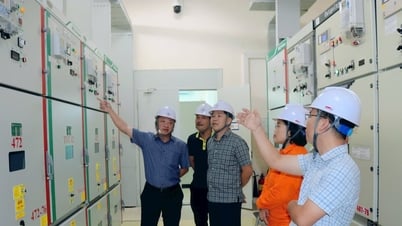



















Comment (0)